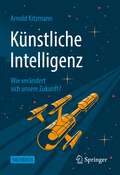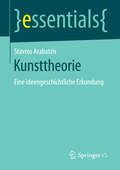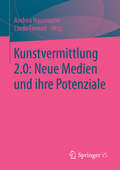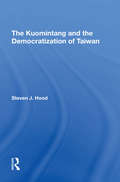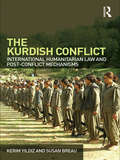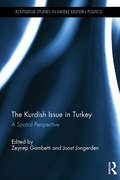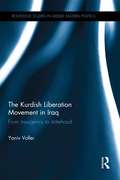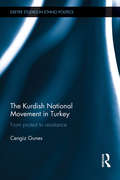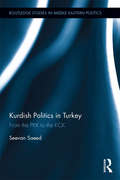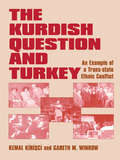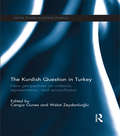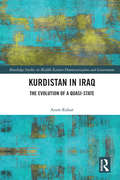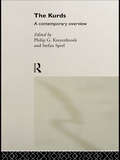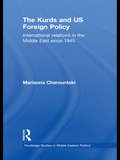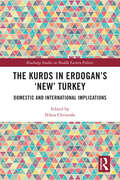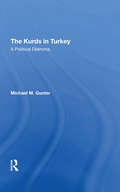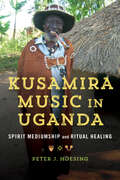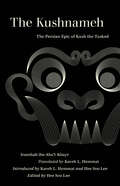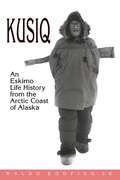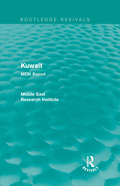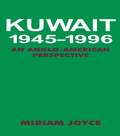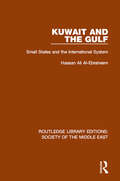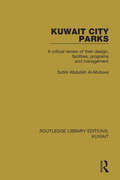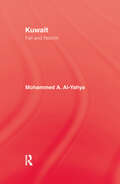- Table View
- List View
Künstliche Intelligenz: Wie verändert sich unsere Zukunft?
by Arnold KitzmannKünstliche Intelligenz (KI) durchdringt zunehmend unser gesamtes Leben, angefangen bei den hochwillkommenen kleinen Erleichterungen des Alltags bis hin zu gravierenden gesellschaftlichen Veränderungen in Arbeitswelt, Forschung und Entwicklung sowie der Privatsphäre jedes Einzelnen. Wir können uns dieser Entwicklung nicht (mehr) entziehen oder gar verweigern, sondern sind gefordert, uns mit ihr auseinanderzusetzen. Dieses Buch erörtert philosophische, ethische, politische, ökonomische Aspekte ebenso wie die Problematik der Selbstbestimmtheit, Freiheit und Manipulierbarkeit des Einzelnen. So entsteht ein kleiner Leitfaden für den Leser, um sich selbst in dieser Phase großer gesellschaftlicher Umwälzungen zu positionieren. Last not least spannend: In der Auseinandersetzung mit Künstlicher Intelligenz wird klar, dass sie uns Heutigen mit Fragen konfrontiert, die bereits die Philosophie vor über zweieinhalb Jahrtausenden umtrieb.
Kunsttheorie: Eine ideengeschichtliche Erkundung (essentials)
by Stavros ArabatzisDieses essential bietet eine ideengeschichtliche Erkundung des modernen Begriffs von Kunst. Es leistet eine theoretische Unterscheidung zwischen dem alten und neuen Kunstbegriff (,,Kultwert" und ,,Ausstellungswert") und zeigt zugleich ihre beider Ununterscheidbarkeit im neuen Kultgegenstand der interaktiv-vernetzten Kultur. Es schl#65533;gt Positions- und Kursbestimmungen f#65533;r eine zuk#65533;nftige Kunst vor, die den imperativen M#65533;chten nicht mehr gehorcht.
Kunstvermittlung 2.0: Neue Medien und ihre Potenziale
by Andrea Hausmann Linda FrenzelDie Neuen Medien eröffnen vielfältige Chancen für die Vermittlungsarbeit in Museen, Ausstellungshäusern und anderen Kultureinrichtungen. Vor allem ermöglichen sie eine verbesserte, direkte Einbeziehung der Besucher in die Inhalte. Die Auseinandersetzung mit Kunst wird so zu einem spannenden, partizipativen und interaktiven Erlebnis. Es ist Ziel dieses Buchs, die Potenziale der Neuen Medien für die Vermittlungsarbeit in Kunst und Kultur fundiert zu untersuchen und im Hinblick auf die Gewinnung, Entwicklung und Bindung von Besuchern praxisnah zu beleuchten.
Kunstvermittlung 2.0: Neue Medien und ihre Potenziale
by Andrea Hausmann and Linda FrenzelDie Neuen Medien eröffnen vielfältige Chancen für die Vermittlungsarbeit in Museen, Ausstellungshäusern und anderen Kultureinrichtungen. Vor allem ermöglichen sie eine verbesserte, direkte Einbeziehung der Besucher in die Inhalte. Die Auseinandersetzung mit Kunst wird so zu einem spannenden, partizipativen und interaktiven Erlebnis. Es ist Ziel dieses Buchs, die Potenziale der Neuen Medien für die Vermittlungsarbeit in Kunst und Kultur fundiert zu untersuchen und im Hinblick auf die Gewinnung, Entwicklung und Bindung von Besuchern praxisnah zu beleuchten.
The Kuomintang And The Democratization Of Taiwan
by Steven J HoodIs the Kuomintang - the nationalist party of China - the villain it is sometimes portrayed to be? Or is it the embodiment of the political and moral good that partisans have claimed it to be? The party has managed a feat of economic modernization in Taiwan and has become a proponent of democracy, yet its reputation has been marred by brutal acts of repression and ineptitude. Focusing on the role of Kuomintang party elites in the democratization process in Taiwan, this book considers the Kuomintang's evolution from a Leninist state party to a fractious one in a competitive political system.
The Kurdish Conflict: International Humanitarian Law and Post-Conflict Mechanisms
by Kerim Yildiz Susan BreauThis book is highly topical considering the recent resurgence of violence by the PKK, the incursions into Northern Iraq by the Turkish army and security forces and Turkey's EU accession negotiations. Turkey has become an increasingly important player in Middle Eastern geopolitics. More than two decades of serious conflict in Turkey are proving to be a barrier to improved relations between Turkey and the EU. This book is the first study to fully address the legal and political dimensions of the conflict, and their impact on mechanisms for conflict resolution in the region, offering a scholarly exploration of a debate that is often politically and emotionally highly charged. Kerim Yildiz and Susan Breau look at the practical application of the law of armed conflicts to the ongoing situation in Turkey and Northern Iraq. The application of the law in this region also means addressing larger questions in international law, global politics and conflict resolution. Examples include belligerency in international law, whether the ‘War on Terror’ has resulted in changes to the law of armed conflict and terrorism and conflict resolution. The Kurdish Conflict explores the practical possibilities of conflict resolution in the region, examining the political dynamics of the region, and suggesting where lessons can be drawn from other peace processes, such as in Northern Ireland. This book will be of great value to policy-makers, regional experts, and others interested in international humanitarian law and conflict resolution.
The Kurdish Issue in Turkey: A Spatial Perspective (Routledge Studies in Middle Eastern Politics)
by Zeynep Gambetti Joost JongerdenThis volume gives a thorough and comprehensive analysis of the Kurdish issue in Turkey from a spatial perspective that takes into account geographical variations in identity formation, exclusion and political mobilisation. Although analysis of Turkey’s Kurdish issue from a spatial perspective is not new, spatial analyses are still relatively scarce. More often than not, Kurdish studies consist of time-centred work. In this book, the attention is shifted from outcome-oriented analysis of transformation in time towards a spatial analysis. The authors in this book discuss the spatial production of home, identity, work, in short, of being in the world. The contributions are based on the tacit avowal that the Kurdish question, in addition to being a question of group rights, is also one of spatial relations. By asking a different set of questions, this book examines; which spatial strategies have been employed to deal with Kurds? Which spatial strategies are developed by Kurds to deal with state, and with the neo-liberal turn? How are these strategies absorbed and what counter-strategies are developed, both in cities populated by the Kurds in south-eastern Turkey and in other regions? Emphasizing that identity or place, its particularity or uniqueness, arises from social practices and social relations, this book is essential reading for scholars and researchers working in Kurdish and Turkish Studies, Urban and Rural Studies and Politics more broadly.
The Kurdish Liberation Movement in Iraq: From Insurgency to Statehood (Routledge Studies in Middle Eastern Politics)
by Yaniv VollerInvestigating the transformation of the Kurdish liberation movement in Iraq this book explores its development from an armed guerrilla movement, engaged in a war for liberation with the government in Baghdad, into the government of a de facto Kurdish state known as the Kurdistan Regional Government. The book seeks to better explain the nature and evolution of the Kurdish liberation struggle in Iraq, which has had important implications over regional geopolitics. Despite attracting growing international attention, the struggle remains understudied. By applying the theoretical framework of de facto statehood to the post-1991 Kurdish liberation movement, the book offers a new approach to understanding the struggle, with a thorough empirical investigation informed by International Relations theory. Identifying international legitimacy, interaction and identity as significant themes in the politics of de facto states and important variables shaping the evolution and policies of these actors, at both the domestic and international levels, this book will be of interest to students and researchers of International Relations, Middle East Politics and Political Science.
The Kurdish National Movement in Turkey: From Protest to Resistance (Exeter Studies in Ethno Politics)
by Cengiz GunesThis book provides an interpretive and critical analysis of Kurdish identity, nationalism and national movement in Turkey since the 1960s. By raising issues and questions relating to Kurdish political identity and highlighting the ideological specificity, diversity and the transformation of Kurdish nationalism, it develops a new empirical dimension to the study of the Kurds in Turkey. Cengiz Gunes applies an innovative theoretical approach to the analysis of an impressively large volume of primary sources and data drawn from books and magazines published by Kurdish activists, political parties and groups. The analysis focuses on the specific demands articulated by the Kurdish national movement and looks at Kurdish nationalism at a specific level by disaggregating the nationalist discourse, showing variations over time and across different Kurdish nationalist organisations. Situating contemporary Kurdish political identity and its political manifestations within a historical framework, the author examines the historical and structural conditions that gave rise to it and influenced its evolution since the 1960s. The analysis also encompasses an account of the organisational growth and evolution of the Kurdish national movement, including the political parties and groups that were active in the period. Bringing the study of the organisational development and growth of the Kurdish National Movement in Turkey up to date, this book will be an important reference for students and scholars of Middle Eastern politics, social movements, nationalism and conflict.
Kurdish Politics in Turkey: From the PKK to the KCK (Routledge Studies in Middle Eastern Politics)
by Seevan SaeedIn the aftermath of the collapse of the Ottoman Empire, the Kurds were promised their own state. However, several factors meant that this dream never became a reality, and the land of the Kurds was divided. Amid a sense of a loss of identity, the Kurds started to fight for their social and political rights. ‘Kurdish Politics in Turkey’ argues that the Kurdish struggle has largely been a failure, and that the emergence of the Unions of Communities in Kurdistan (KCK) has been a direct result of this. The book examines the success of the KCK and how it has transformed this Kurdish struggle in Turkey from a one-dimensional political movement, to a multi-dimensional social movement.
The Kurdish Question and Turkey: An Example of a Trans-state Ethnic Conflict
by Kemal Kirisci Gareth M. WinrowThis volume examines the Kurdish question in Turkey, tracing its developments from the end of the Ottoman Empire to the present day. The study considers: secession; federal schemes; various forms of autonomy; the provision of special rights; and further democratization.
The Kurdish Question in Turkey: New Perspectives on Violence, Representation and Reconciliation (Exeter Studies in Ethno Politics)
by Cengiz Gunes Welat ZeydanlioğluAlmost three decades have passed since political violence erupted in Turkey’s south-eastern regions, where the majority of Turkey’s approximately 20 million Kurds live. In 1984, the Kurdistan Workers’ Party (PKK) initiated an insurgency which intensified in the following decades and continues to this day. Kurdish regions in Turkey were under military rule for more than a decade and the conflict has cost the lives of 45,000 people, including soldiers, guerrillas and civilians. The complex issue of the Kurdish Question in Turkey is subject to comprehensive examination in this book. This interdisciplinary edited volume brings together chapters by social theorists, political scientists, social anthropologists, sociologists, legal theorists and ethnomusicologists to provide new perspectives on this internationally significant issue. It elaborates on the complexity of the Kurdish question and examines the subject matter from a number of innovative angles. Considering historical, theoretical and political aspects of the Kurdish question in depth and raising issues that have not been discussed sufficiently in existing literature, this book is an invaluable resource for students and scholars of Nationalism and Conflict, Turkish Politics and Middle Eastern politics more broadly.
Kurdistan in Iraq: The Evolution of a Quasi-State (Routledge Studies in Middle Eastern Democratization and Government)
by Aram RafaatThe Kurdish-Iraqi conflict lies in the fact that Kurdistan is a nation-without-a-state and Iraq is a non-nation state, each possessing a nationhood project differing from and opposing the other. Iraqi-Kurdistan is an outward looking entity seeking external patronage. Though external patronage has played a pivotal role in the evolution of the Kurdish quasi-state, a lack of positive patronage has prevented it from achieving independence. This book looks at how the Kurdish and Iraqi quests for nationhood have led to the transformation of Iraqi Kurdistan into an unrecognised quasi-state, and the devolution of the Iraqi state into a recognised quasi-state. This is done by examining the protracted Iraqi-Kurdish conflict and by analysing the contradictions and incompatibilities between the two different nationalisms: Iraqi and Kurdish. The author explains that Kurds as a nation without a state have their own nationhood project which is in opposition to the Iraqi nationhood project. Each has its own identity, loyalty and sovereignty. The book answers the question as to how the Kurdish quest for nationhood has been treated by successive Iraqi regimes. Furthermore, it fills in the literary gaps which exist in relation to the Iraqi-Kurdish conflict by specifying and categorising the cardinal conditions that drive ethnic and nationalist conflicts which lead to the creation of separatist entities. Drawing upon a vast amount of untapped Kurdish and Arabic primary sources, the book draws on prominent theories on nation-states and quasi-states. It will particularly appeal to students and scholars of international relations, political theory and Middle Eastern Studies.
The Kurds: A Contemporary Overview (SOAS/Routledge Studies on the Middle East)
by Philip G. Kreyenbroek Stefan SperlThe position of the 19 million Kurds is an extremely complex one. Their territory is divided between 5 sovereign states, none of which have a Kurdish majority. They speak widely divergent dialects, and are also divided by religious affiliations and social factors. It has taken the tragic and horrifying events in Iraq this year to bring the Kurds to the centre of the world stage, but their particular problems, and their considerable geo-political importance, have been the source of growing concern and interest during the last two to three decades. There is a remarkable dearth of reliable and up-to-date information about the Kurds, which this book remedies. Its contributors cover social and political issues, legal questions, religion, language, and the modern history of Kurds in Turkey, Iraq, Iran, Syria and the Soviet Union. The Kurds will be an invaluable source of reference for students and specialists in Middle East studies, and those concerned with wider questions of nationalism and cultural identity. It also offers extremely useful background information for those with a professional concern for the numerous Kurdish immigrants and asylum seekers in Western Europe and North America.
The Kurds and US Foreign Policy: International Relations in the Middle East since 1945 (Routledge Studies in Middle Eastern Politics)
by Marianna CharountakiThis book provides a detailed survey and analysis of US–Kurdish relations and their interaction with domestic, regional and global politics. Using the Kurdish issue to explore the nature of the engagement between international powers and weaker non-state entities, the author analyses the existence of an interactive US relationship with the Kurds of Iraq. Drawing on governmental archives and interviews with political figures both in Northern Iraq and the United States, the author places the case study within a broader International Relations context. The conceptual framework centres on the inter-relations between actors (both state and non-state) and structures of material and ideational kinds, while the detailed survey and analysis of US–Kurdish relations, in their interaction with domestic, regional and global politics, forms the empirical core of the study. Stressing the intertwining of domestic and foreign policy as part of the same set of dynamics, the case study explains the emergence of the interactive and institutionalized US relationship with the Kurds of Iraq that has brought about the formation, within an Iraqi framework, of an undeclared US official Kurdish policy in the post-Saddam era. Filling a gap in the literature on US–Kurdish relations as well as the broader topic of International Relations, this book will be of great interest to those in the areas of International Relations, Middle Eastern and Kurdish Politics.
The Kurds in Erdogan's "New" Turkey: Domestic and International Implications (Routledge Studies in Middle Eastern Politics)
by Nikos ChristofisThis book focuses on the AKP government since 2002 during which time the state’s approach to the Kurdish Question has undergone several changes. Examining what preceded and followed the failed putsch of 2016, it explains and critiques that situates the Kurdish Question in its broader context. It stands out with the main objective to avoid any ‘policy-oriented bias’ through an interdisciplinary and multi-thematic approach. The volume discusses the state and policies in the Kurdish region of Turkey, as well as counter-hegemonic discourses that seek to reform existing institutions. Some chapters focus on the domestic aspects and gender perspectives of the Kurdish Question in Turkey, which focus has been taken over by recent developments in Syria and the Middle East in general. Other chapters include a range of new aspects of Turkish society and politics, and the international aspects of Ankara’s policies and its implications not only inside Turkey but also internationally. Taking both domestic and foreign policy aspects into account, the book offers a set of innovative explanations for the state of crisis in Turkey and a solid basis for thinking about the likely path forward. Scholars, researchers and post-graduates, interested in political theory, Kurdish and Middle East politics will find this book invaluable.
The Kurds In Turkey: A Political Dilemma
by Michael GunterThis book analyzes the Kurdish problem in Turkey from the point of view of the Turkish authorities, as well as from the perspective of disaffected Kurds living in that state and abroad. It also analyzes the political instability and terrorism rampant in Turkey during the late 1970s.
Kusamira Music in Uganda: Spirit Mediumship and Ritual Healing
by Peter J. HoesingA performance culture of illness and wellness In southern Uganda, ritual healing traditions called kusamira and nswezi rely on music to treat sickness and maintain well-being. Peter J. Hoesing blends ethnomusicological fieldwork with analysis to examine how kusamira and nswezi performance socializes dynamic processes of illness, wellness, and health. People participate in these traditions for reasons that range from preserving ideas to generating strategies that allow them to navigate changing circumstances. Indeed, the performance of kusamira and nswezi reproduces ideas that remain relevant for succeeding generations. Hoesing shows the potential of this social reproduction of well-being to shape development in a region where over 80 percent of the population relies on traditional healers for primary health care. Comprehensive and vivid with eyewitness detail, Kusamira Music in Uganda offers insight into important healing traditions and the overlaps between expressive culture and healing practices, the human and other-than-human, and Uganda's past and future.
The Kushnameh: The Persian Epic of Kush the Tusked
by IranshahThe first English translation of a strange and unusual Persian epic, this action-packed tale of an evil, monstrous king explores questions of nature and nurture and brings the global middle ages to life. The great Persian epic known as the Kushnameh follows the entangled lives of Kush the Tusked––a monstrous antihero with tusks and ears like an elephant, descended from the evil emperor Zahhak––and Abtin, the exiled grandson of the last true Persian emperor. Abandoned at birth in the forests of China and raised by Abtin, Kush grows into a powerful and devious warrior. Kush and his foes scheme and wage war across a global stage reaching from Spain and Africa to China and Korea. Between epic battles and magnificent feasts are disturbing, sometimes realistic portrayals of abuse and oppression and philosophical speculation about nature and nurture and the origins of civilization. A fantastical adventure story stretching across the known world and a literary classic of unparalleled richness, this important work of medieval Persian literature is a valuable source for understanding the history of racism and constructions of race and the flows of lore and legend from the Central Asian Silk Road and the Sahara to the sea routes of the Indian Ocean and the Mediterranean. The Kushnameh is a treasure trove of Islamic and pre-Islamic Persian cultural history and a striking contemporary document of the "global middle ages," now available to English-speaking readers for the first time.
Kusiq: An Eskimo Life History From The Arctic Coast Of Alaska
by Waldo BodfishIf you are a casual reader who wants an intriguing glimpse into Eskimo life, a novice oral historian who wants to know how it is done right, or a student of Alaska who wants an Inupiat perspective of the changes that swept the western Arctic this century, read Kusiq. <P><P>(Journal of the West) <P><P> A vivid 'inside' account of an observant Eskimo male who mastered much of the traditional subsistence technology and lore and who lived through the end of commercial whaling, the development and decline of introduced reindeer herding and the fur market, and through World War II and its aftermath. In its scope as well as in the presentation of historical, cultural, and linguistic context, Kusiq is far more extensive than [other] autobiographies. <P><P>(American Indian Culture and Research Journal) <P><P> Kusiq represents a new wave in literature, the expressions of cultural awakenings among native American cultures, the attempt to redefine the native world in written form, to recast history, a history for too long the domain of the white system. <P><P>(ARCTIC) <P><P> It would be difficult to find a better, more interesting first-person account of Eskimo life during the first half of this century. [It is] second in an ambitious series of oral histories developed by the University of Alaska Press. <P><P>(Scan-A-Book)
Kuwait: MERI Report (Routledge Revivals: Middle East Research Institute Reports)
by Middle East Research InstituteFirst published in 1985, this study, focusing on Kuwait, looks at the underlying reasons why certain political, economic and social events have taken place in the country’s history. It provides vital analysis of the political and economic issues of the country, and those that have affected it, as well as providing statistical material on all the key data of the political economy.The book was originally published as part of the Middle East Research Institute (MERI) Reports on the Middle East which quickly established themselves as the most authoritative and up-to-date information on the state of affairs in the region.
Kuwait, 1945-1996: An Anglo-American Perspective
by Miriam JoyceBased on extensive research of British documents from the Public Records Office, and American documents from the National Archives and several Presidential Libraries, this book surveys events in Kuwait from the beginning of the twentieth century until the Second World War, and explains Britain's initial interest in the ruling al-Sabah family, before focusing on the post-1945 period.
Kuwait and the Gulf: Small States and the International System (Routledge Library Editions: Society of the Middle East #10)
by Hassan Ali Al-EbraheemA major result of the Second World War was the emergence of small states which vastly increased the membership of the international system. While a number of small states existed before the war many of these had made no effort to participate actively in the system; since then, the doctrine of equality of states has been established, in theory at least, through their admission to the UN. This book, first published in 1984, deals with the factors which have contributed to the emergence of such a large number of small states, the difficulties which they have experienced in achieving statehood, and their struggle to gain political integration. A precise analysis of the foreign policy and economic factors governing the activity of small states, particularly that of Kuwait and the other Gulf states, is presented here.
Kuwait City Parks: A Critical Review of their Design, Facilities, Programs and Management (Routledge Library Editions: Kuwait #3)
by Subhi Abdullah Al-MutawaThe purpose of this study, first published in 1985, was to investigate the management practices of the Kuwait City Park System and the relationship of these practices to user satisfaction. The decision making process affecting the parks had been fragmented between three agencies, and this created conflicts in different goals, responsibilities and objectives. The study shows how much impact the uncoordinated and fragmented decisions had on user satisfaction in the parks.
Kuwait - Fall & Rebirth: Fall And Rebirth
by Al-YahyaFirst published in 1993. Routledge is an imprint of Taylor & Francis, an informa company.
